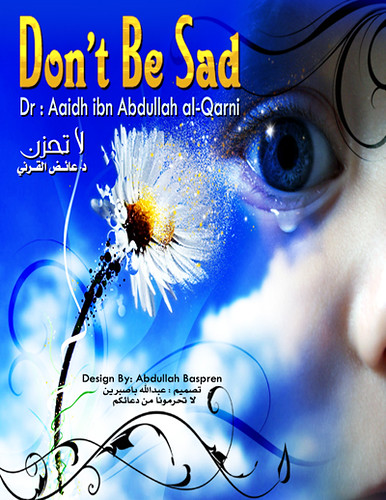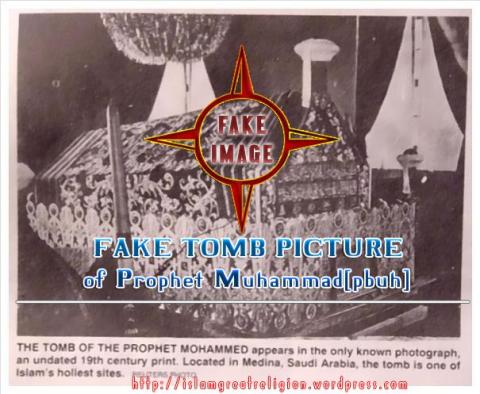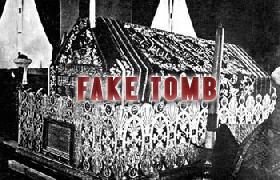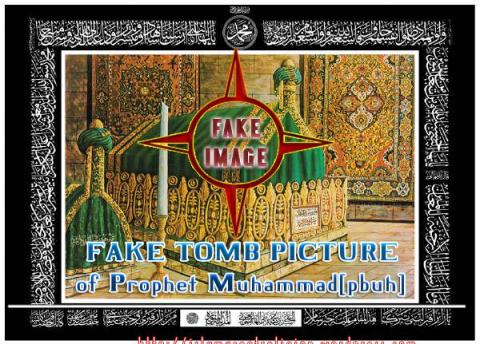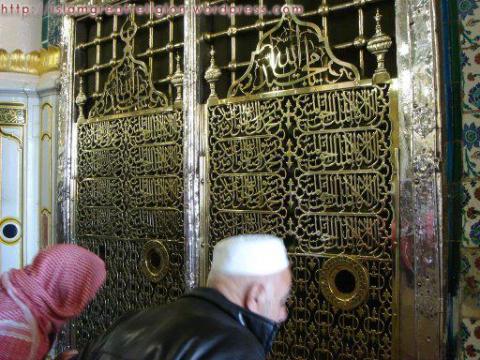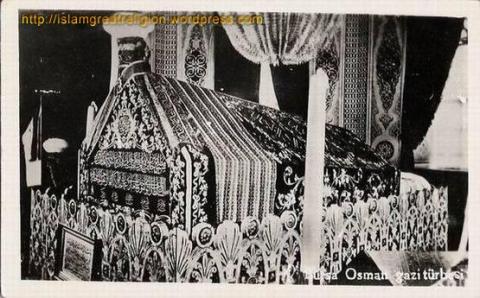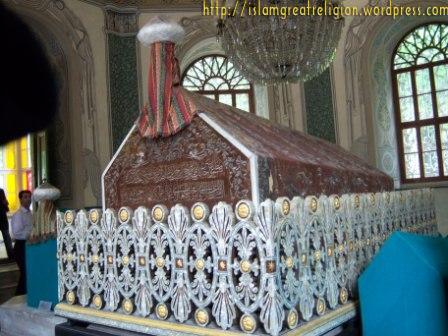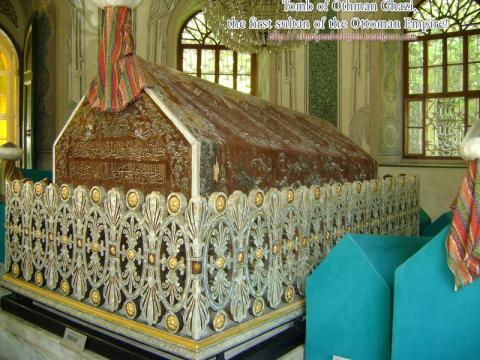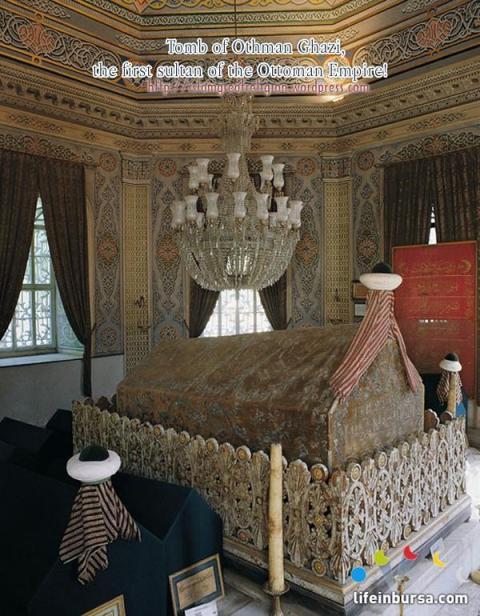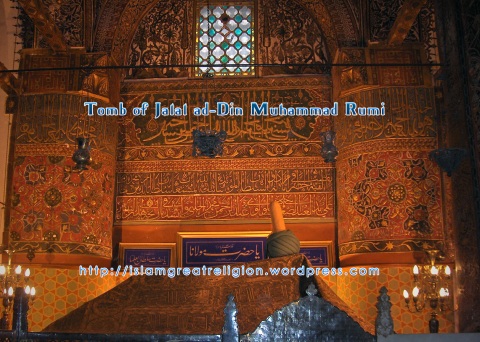
The wives of the Prophet (peace and blessing be upon him)By Sheikh Abdul Mohsen Bin Mohammed Al Qasem The Prophet's Mosque
First Sermon (Khutbah)
In what is to follow: So fear Allah, O servants of Allah, as He should be
feared. The fear of Allah is a commemoration to every devotee returning to Allah
and salvation to servants from damnation. Oh Muslims, the Muslim woman is
honoured to follow the footsteps of elite women, who lived in the best of the
centuries, and were brought up in the noblest of homes, the home of Prophecy,
may Allah hold high their status and magnifiy their esteem, and the Quran was
revealed in their praise; Allah the Almighty said: "O Consorts of the Prophet!
You are not like any of the (other) women: if you do fear (Allah)" [Al-Ahzab,
32], blessed wives and great women.
The first of them, the wise skilled woman with religious convictions and noble
descent; Khadija daughter of Khuwaylid, may Allah be pleased with her. She was
brought up embroiled in virtues, morality and generosity, marked by chastity and
honour. She was known among the women of Mecca as the pure. The chosen one
married her; and what a woman, she was for him! She supported him with her own
self, her wealth and wisdom of mind. During his grief, peace be upon him, he
used to come to her and express his concerns. Revelation came down to him the
first time, so he on returned to her with shaken heart from the horror of what
he saw, and said to her: ((what is wrong with me, Khadija?! I was afraid for
myself)), she received him with a stealth heart and said to him: Nay, by Allah!
Allah will never fail you [1].
Islam
appeared in her home, so she was the first of this nation to believe, Ibn Al-Atheer,
may Allah have mercy on him, said: "Khadija is the first of Allah’s creation to
Islam, neither man nor woman preceded her" [2].

Hardships increased greatly on the Prophet at the beginning of his call, and
abuse intensified, she was for him a kind heart and thoughtful opinion. He does
not hear anything he dislikes from people, then comes back to her, but supported
him and played it down, the prophet says: ((she believe in me while people
disbelieved in me, and trusted me while people belied me consoled with her
wealth while people deprived me, and Allah blessed me with her children, while
the children of women deprived me)) Narrated by Ahmad [3]. Great and caring to
her husband and an affectionate mother she was. All the children of the Prophet
were from her, except Ibrahim. Her morals were high and her ethics exquisite,
she never argued verbally with the chosen one, and never did she hurt his
feelings in a quarrel. The Prophet says: ((Gabriel came to me and said: give
Khadija the good tidings that she will have a palace in Paradise made of canes
(of hollow pearl), no noise therein nor hustle)). Statement agreed upon [4].
Suhayli, may Allah have mercy on him, said: "the good tidings of a palace in
Paradise were brought to her, because she never raised her voice in the presence
of the Prophet, never burdened him one day, never hustled him one day and never
hurt him" [5].
She was pleasing and pleased at the sight of her Lord. The Prophet, peace be
upon him, says: ((Gabriel said to me: If Khadija came to you, then convey to her
peace from her Lord and from me)) Statement agreed upon [6]. Ibn Al-Qayyim, may
Allah have mercy on him, said: "and it is a virtue unbeknown to a woman other
than her" [7]. Allah loved her and so did the angels, and the Prophet loved her;
he says: ((I was blessed with her love)) Narrated by Muslim, [8].
When he mentioned her, he exalted her status and thanked her company. Aisha, may
Allah be pleased with her, says: whenever the Prophet mentioned Khadija, he
could never tire of praising her and seeking forgiveness for her [9]. He kept in
mind her affection and devotion; he used to honour her friends after her death.
Aisha, may Allah be pleased with her, says: it may be that he slaughters a
sheep, then cuts it into pieces and sends them to Khadija’s friends. I may say
to him: as if there is not a woman in the world but Khadija! He says: ((she was
and was, and I had a son from her)) Narrated by Bukhari [10]. The Prophet heard
the voice of her sister, after her death, he was saddened a lot and said: ((she
reminded me of Khadija)) [11].
She was accomplished in her religion, her rationality and her character. He
says, peace be upon him: ((a lot of the men were accomplished, and only three
among women were accomplished: Mary the daughter of Imran, Assia the wife of
Pharaoh and Khadija the daughter of Khuwaylid)) Narrated by Ibn Mardawayh [12].She preceded the women of this nation in the charity, honour and eminence. He
says, peace be upon him: ((the best of its women, i.e: in her time: Mary the
daughter of Imran, and the best of its women, i.e: in this nation: Khadija))
Statement agreed upon [13].
She was righteous in herself and set right her home; she reaped the fruit of her
labour. She became, together with her daughter, the best of women of this world
in Paradise. He says, peace be upon him: ((the best women of the dwellers of
Paradise: Khadija, Fatima, Mary and Assia)) Narrated by Ahmad [14].

She was great in the heart of the Prophet; he did not marry a woman before her
and did not marry a woman with her, nor did he marry until she passed away. He
grieved for her loss. Adh-Dhahabi, may Allah have mercy on him, says: "She was
of a great mind, dignified and religious, had integrity, honourable from the
people of Paradise "[15]. In the house of trust and piety, was born Aisha the daughter of Abu Bakr, may
Allah be pleased with her, brought up in the house of faith, because her mother
a companion of the Prophet, her sister the bearer of the two bands was also a
companion, and so was her brother. Her father was the most trusting of this
nation. She grew up in a house of knowledge; her father was the scholar of
Quraysh and of their kinsfolk. Allah has given her a flowing intelligence and a
very sharp memorization. Ibn Katheer, many Allah have mercy on him, said: "There
was no likening to Aisha in nations; in her memorization, knowledge, eloquence
and mind" [16], she outstripped the women of her gender in knowledge and wisdom.
She was blessed in jurisprudence with an understanding, and in poetry with
memorization, and she was a pot to the sciences of legislation. Adh-Dhahabi, may
Allah have mercy on him, says:" incontestably the most learned in jurisprudence
of the women of the nation, and I do not know, in the nation of Mohammed, or
rather in women at all, a woman more knowledgeable than her "[17].
She transcended other women by her virtues and her good company. The chosen one
says: ((the virtue of Aisha over women is like that of stew over all food))
Statement agreed upon [18].
The Prophet loved her, and he was to love only that which is good, Amr ibn Al-‘Aas
says: Which of the people are most beloved to you, O Messenger of Allah? He
said: ((Aisha)), I said: and from men? He said: ((her father)) "Narrated by
Bukhari [19].
He did not marry a virgin apart from her, and the revelation came not down in a
woman’s quilt apart from her. She was chaste in herself and a worshiper to her
Lord. She does not go out of her house except at night, so that men do not see
her. She says about herself: we used not go out except at night [20], in
accordance to the words of Allah: And stay quietly in your houses, and make not
a dazzling display, like that of the former Times of Ignorance [Al-Ahzab, 33].
Al-Qurtubi, may Allah have mercy on him, said: "The law is ample with the
necessity of women keeping to their homes, and refrain from going out of them
except for a dire need... But, if there was a need to go out, so let it be
discrete and in full cover" [21].

Allah tests those He loves, and the test comes according to the amount of faith.
She was slandered, may Allah bless her, at the age of twelve years. She said: "I
cried until I could not sleep and my tears could not dry; so much so that my
parents thought weeping would split my liver. The ordeal intensified. She said:
so much so that my tears dried and I could not feel a drop [22]. Ibn Katheer,
may Allah have mercy on him, said: Allah was jealous for her and revealed her
innocence in ten verses to be read for eternity. Her mention transcended and her
status lifted up, so that she hears about her chastity while young. Allah has
testified that she is one of the righteous, and promised her forgiveness and
generous provision. She did not remove a watchful eye over our prophet; she
nursed and served him until he died in her home and her night, and between her
chin and chest.
And the sound-hearted Sawdah daughter of Zam’ah, may Allah be pleased with her,
the first woman the Prophet married after Khadija. She was the only one for
three years. She was sublime and noble. She was blessed with a clear conscience.
She gave away her day to Aisha, may Allah be pleased with her, in consideration
to the feelings of the Prophet in order to attain the pleasure of her Lord.
And the night-praying day-fasting Hafsa daughter of the leader of the believers
Omar ibn Al-Khattab, may Allah be pleased with him, grew up in a house of sheer
support to the religion and a manifestation of truth; seven of her kinsfolk
attended the battle of Badr. Aisha, may Allah be pleased with her, says about
her: she was the one who used to precede me in sublimation, among the wives of
the Prophet [23].
And the generous spender Zaynab daughter of Khuzaymah Al-Hilaliya, the one who
hastens in giving and benevolent works. She stayed with the Prophet two months
and then died.
And the weary migrant Umm Habiba, Ramla daughter of Abu Sufyan, may Allah be
pleased with her. None of his wives was closer in kin to him than her, nor of
greater dowry among his wives than her, nor of a more distant abode among the
ones which he wedded than her. He concluded the act of marriage on her, while
she was in Ethiopia fleeing for her religion. She received her dowry on his
behalf through the ruler of Ethiopia, who furnished her forth for him.
And the modest and forbearing Umm Salamah, may Allah be pleased with her, Hind
daughter of Abu Umayyah, among the first migrants. When she wanted to migrate to
Medina with her husband Abu Salamah, her people split her from her husband and
her toddler, she said: "I used to go out every morning and sit in the Abtah, I
kept crying until the evening for a whole year or thereabout, until they took
pity on me and returned my toddler to me [24].
Her certainty in Allah was firm. Her husband Abu Salamah died; she said a
Prophetic supplication, so Allah compensated her with the Messenger of Allah as
a husband for her. She says: I heard the Prophet say: ((no Muslim befalls him a
calamity and says: we belong to Allah and unto Him we shall return. O Allah,
come to my rescue in my calamity and replace it for me with something better
than it, but Allah compensated him by something better than it)). She said: When
Abu Salamah died, I said: which of the Muslims is better than Abu Salamah; the
first household to emigrate to the Messenger of Allah?! And then I said it, so
He replaced it to me with the Messenger of Allah. Narrated by Muslim [25]. So
make this supplication an asset for you, when calamity befalls you; He will
replace it for you with that which is better than your calamity.

The mother of the destitute, Zaynab daughter of Jahsh, the daughter of the
Messenger of Allah’s aunt, enjoyed high status and descent, honour and pomp.
Allah joined her in marriage to His Prophet by a revelation from His book,
without a guardian or a witness. The Almighty said: Then when Zaid had dissolved
(his marriage) with her, with the necessary (formality), We joined her in
marriage to you [Al-Ahzab, 37]. The Marriage of the Prophet to her was a
blessing on the Muslim women to the time of reckoning, when the veil was imposed
upon the daughters of Eve, following his marriage to her; to be maintenance for
honour, chastity and purity.
She was generous giving to the poor and vulnerable, abundant in righteousness
and charity. Besides the nobles of her position and elevation of her status, she
used to work with her hands; tanning and decorating with beads, and giving in
charity from her earnings. Aisha, may Allah be pleased with her, said of her: I
have never seen a woman full of goodness in the religion than Zaynab; more
fearing of Allah, more honest in word, more visiting to her kith and of greatest
charity [26].
And the devout worshiper Juwayriya daughter of Al-Harith, may Allah be pleased
with her, from the Bani Al-Mustalaq. Her father was a noble, obeyed among his
people, while her, she was blessed in herself and her people. Aisha, may Allah
be pleased with her, says of her: I have never seen a woman who was the greatest
blessing to her people, than her [27].
She was oft-worshiping of her God, submissive to her Lord. She used to sit in
her prayer premise, invoking Allah until mid-day. She says: the Messenger of
Allah came to me while I was praising (Allah), then went to his business and
returned close to mid-day, he said: ((Are you still sitting?)), he means:
invoking Allah, she said: Yes!
Narrated by Muslim [28].
And the notable Safiyyah, daughter of Huyey, may Allah be pleased with her; a
descendant of Aaron, peace be upon him, was honourable and rational. She had a
status, religious convictions, forbearance and the veneration. The Prophet said
to her: ((You are indeed a daughter of a Prophet: Aaron, and your uncle a
Prophet namely: Moses, and you are under a Prophet)) "Narrated by Al-Tirmidhi
[29].
The feast of the Prophet in her honour, during her wedding, clarified butter
ghee, camel’s cheese and dates; it was a simplified and blessed marriage.
And the honourer of her kinship, the mother of the believers, Maymounah daughter
of Al-Harith Al-Hilaliya, may Allah be pleased with her, was of the great women.
Allah has given her purity of heart and clearance of conscience and inherence of
worship. Aisha, may Allah be pleased with her, says: she was indeed of the most
devout to Allah among us, and most honouring of kinship. [30].
Thereafter: O Muslims, such is the biography of the imperishable women in Islam;
the Mothers of the Believers. Their qualities were bright; they combined
goodness and virtues. It is befitting of the wives of the Muslims to make them a
beacon for life; sipping of their clear flowing exploits, following their
example in religion, ethics, weariness of Allah, full submission to Allah and
His Messenger, inherence of worship, multiplication of good deeds, sincerity in
speech, safeguarding the tongue, donating for the poor, relieving the anguish of
the vulnerable, seeking to reform the children and patience in putting right
their erroneous inclinations, entrenching in knowledge and engaging with sure
scholars, keeping to concealment and chastity, be resolute at home, keeping to
the Islamic dress code, be removed from the doubtful matters and desires, beware
of stretching hopes and oblivion in life, or taking care of appearances with
corruption of the core issues, or giving the green light to the sight in
forbidden matters and speaking softly with men, and that they beware of the
trumpets calling for the wanton display and mixing with men, for the dignity of
a woman and her splendour lie in her religion and her veil.

I seek refuge in Allah from Satan the accursed, “O Prophet! Tell your wives and
daughters, and the believing women, that they should cast their outer garments
over their persons (when abroad): that is most convenient, that they should be
known (as such) and not molested. Allah is Oft- Forgiving, Most Merciful”. [Al-Ahzab,
59].
May Allah bless me and you with virtue of the Noble Quran, and benefited me and
you by what is therein of verses and words of wisdom. I say that which you hear,
and I ask forgiveness from Allah for me and you and all the Muslims from every
sin, so seek forgiveness from Him; He is Oft-Forgiving, Oft-Merciful.
-----------------------------------------------------------------------------------------
[1] Saheeh of Bukhari: Book of Interpretation (4954) according to Aisha, may
Allah be pleased with her. It is also in Muslim in ‘The Faith’ (160).
[2] The Lion of the Jungle (1/1337).
[3] Musnad of Ahmad (6/117) according to Aisha, may Allah be pleased with her,
and also narrated by Tabarani in ‘Al-Kabeer’ (23/13), and its narration was made
good by Haithami in Al-Jaami’ (9/224).
[4] Saheeh of Bukhari: Book of Virtues and Merits (3821), Saheeh of Muslim: Book
of Virtues of the Companions (2432) from Abu Hurayrah, may Allah be pleased with
him.
[5] See: the Beginning and the End (3/127).
[6] Saheeh of Bukhari: Book of Virtues and Merits (3821), Saheeh of Muslim: Book
of Virtues of the Companions (2432) from Abu Hurayrah, may Allah be pleased with
him.
[7] Zaad Al-Ma’aad (1/102).
[8] Saheeh Muslim: Book of Virtues of the Companions (2435) according to Aisha.
[9] Narrated by At-Tabarani in Al-Kabeer (23/13), Al-Haithami in his Majma’
(9/224): "its chain of narration is good."
[10] Saheeh of Bukhari: Book of Virtues and Merits (3818) according to Aisha,
may Allah be pleased with her..
[11] See who narrated it with this wording. Bukhari narrated in the Book of
Virtues and Merits (3821), and Muslim in the Book of Virtues of the Companions
(2437) according to Aisha, may Allah be pleased with her: Hala, daughter of
Khuwaylid, sister of Khadija, sought permission from the Messenger of Allah, he
recognized the permission-seeking of Khadija, he was shocked for that and said:
((O Allah, make it Hala)).
[12] Narrated by Ibn Mardawayh by way of Shoab from of Mu’awiyah bin Qurrah,
according to his father, Marfu’ as in the Exegesis of Ibn Katheer (1/363).
[13] Saheeh of Bukhari: Book of Virtues and Merits (3815), Saheeh Muslim: Book
of Virtues of the Companions (2430) according to Ali, may Allah be pleased with
him.
[14] Musnad of Ahmad (1/293, 316, 322) from Ibn Abbas, may Allah be pleased with
him and also narrated by Abd bin Hameed (597), and An-Nisa’i in Al-Kubra (5/93,
94), and Abu Ya’la (2722), and Tabarani in Al-Kabeer (11/336, 22/407, 23/7), and
classed as authentic by Ibn Hibbaan (7010), and Al-Haakim (3836, 4160, 4754,
4852), and classed as good by An-Nawawi in Tahdheeb Al-Asmaa’(2/341), Al-Haithami
said in Al-Majma’ (9/223): "their chain of narrators are those of the
authentic", which is in Saheeh Al-Jaami’ (1135).
[15] Siyar A’laam An-Nubala’ (2/110).
[16] The Beginning and the End (3/129).
[17] Siyar A’laam An-Nubala’ (2/140).
[18] Saheeh of Bukhari: Book of Virtues and Merits (3769, 3770), Saheeh of
Muslim: Book of Virtues of the Companions (2431, 2446) from Abu Musa Al-Ash'ari
and according to Anas ibn Maalik, may Allah be pleased with them.
[19] Saheeh of Bukhari: Book of Virtues and Merits (3662). It is also in Muslim
in the Book of Virtues of the Companions (2384).
[20] Narrated by Bukhari in the Oaths (2661), and Muslim in Repentance (2770) in
the Story of Fabrication.
[21] Al-Jaami’ Li-Ahkaam Al-Qur’aan (14/179, 180).
[22] Narrated by Bukhaari in the Oaths (2661), and Muslim in Repentance (2770)
in the Story of Fabrication.
[23] What is sure in the two Saheehs that Aisha, may Allah be pleased with her,
said it in Zaynab daughter of Jahsh, may Allah be pleased with her, as in the
Story of Fabrication, was narrated by Bukhaari in Oaths (2661), and Muslim in
Repentance (2770).
[24] Narrated by Ibn Ishaaq as in the Prophetic Conduct (2 / 315).
[25] Saheeh of Muslim: Book of Funerals (918).
[26] Saheeh of Muslim: Book of Virtues of the Companions (2442).
[27] Narrated by Ahmad (6/277), Abu Dawood in Emancipation (3931), and Al-Haakim
(6781), and classed as authentic by Ibn Al-Jaarood (705), Ibn Hibbaan (4054,
4055), and authenticated as good by Al-Albani in Saheeh Sunan Abi Dawood (3327).
[28] Saheeh of Muslim: Book of Invocations (2726) with this sense.
[29] Sunan Al-Tirmidhi: Book of Virtues and Merits (3894) from Anas, may Allah
be pleased with him, and also narrated by Mu’ammar in his Jaami’ (11/430-the
fascicule), and Abd bin Hameed (1248), and Ahmad (3/135), and An-Nisa’i (5/291),
and Abu Ya’la (3437), and Abu Na’eem (2 / 55), and Al-Tirmidhi said: "This is a
sound authentic Statement, Gharib from this side," and classed as saheeh by Ibn
Hibbaan (7211), and is in Saheeh Sunan Al-Tirmidhi (3055).
[30] Narrated by Ibn Sa'd in Attabaqaat (8/138), and Al-Harith ibn Abi Usama
(455 –Bughyat Al-Baahith), and Abu Na’eem (4/97) and classed as authentic by Al-Haakim
(6799), and corrected by Ibn Hajar in Al-Isaba (8/128) with the support of Ibn-
Sa’d.
The Second Sermon
Praise be to Allah for his kindness, and thank Him for granting his success and
gratitude, and I bear witness that there is no god but Allah alone with no
partner, out of respect for His Status, and I bear witness that Mohammed is His
servant and Messenger, may Allah bless him, his family and his companions, and a
great deal more of praises.
O Muslims, the Prophet's wives lived with him in a modest house, in rooms built
of mud bricks and palm branches, but full of faith and piety. They were patient
with the Prophet over poverty and hunger. They would spend a month or two
without a fire being kindled in their homes, and days come where only a single
date is found in their homes, and often time passes by where there is therein
nothing but water without food; contentment in life and patience for the promise
of Allah: and verily the Hereafter will be better for you than the present [Ad-Dhuha,
4].
Their reward is multiplied twofold “But any of you that is devout in the service
of Allah and His Messenger, and works righteousness, to her shall We grant her
reward twice: and We have prepared for her a generous Sustenance”. [Al-Ahzab,
31].
Five of them the Prophet, peace be upon him, married while they were between
the ages of forty to sixty years. He has achieved by that the care of widows and
the fostering of their orphan kids. He married Khadija, may Allah be pleased
with her; she was forty years of age and had three children from a man other
than him, while he did not yet marry, and married Zaynab daughter of Khuzaymah,
a widow in her sixties, and married Umm Salamah, a widow with six children, and
married Sawdah, a widow of fifty-five years of age.
He married relatives from the daughters of his uncle and aunts, and married from
distant ones. He was to them a merciful husband, kind, generous, of decent
companionship with them, of lasting smile, gentle with them; whoever is in the
pursuit of happiness, let him take the best of mankind as his example, and let
the Muslim woman catch up with the rank of his righteous wives, for there is no
success for the woman but by seeking their qualities in decency, righteousness,
piety and reward for good to the husband and child.
Then know that Allah commanded you to send peace and blessings on the Prophet,
He said in the essence of revelation: Allah and His angels send blessings on the
Prophet. O you who believe Send blessings on him, and salute him with all
respect. [Al-Ahzab, 56].
O Allah! Send your peace and blessings upon our Prophet Mohammed, and be
pleased, O Allah, with his upright successors, who judged by what is right; that
by which they rendered justice: Abu Bakr, Omar, Othman and Ali, and all of the
remaining companions...




